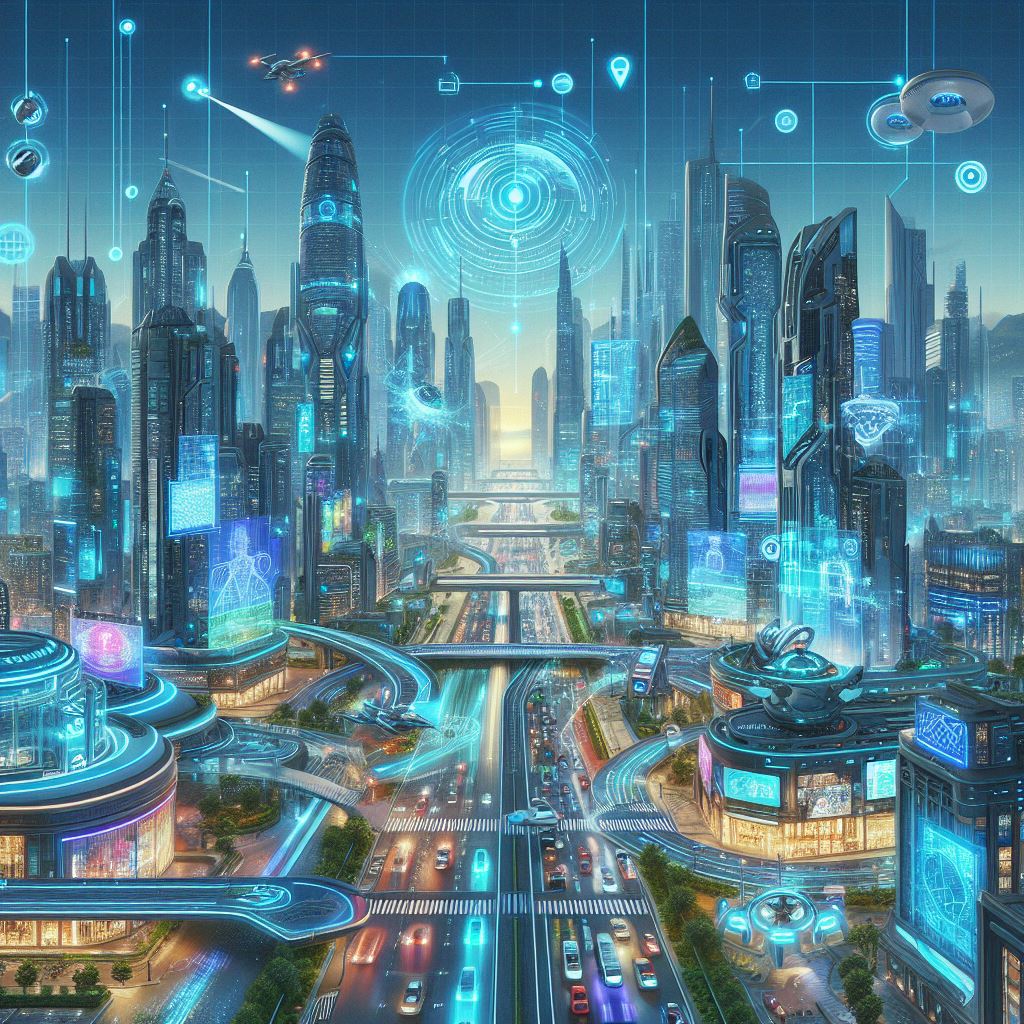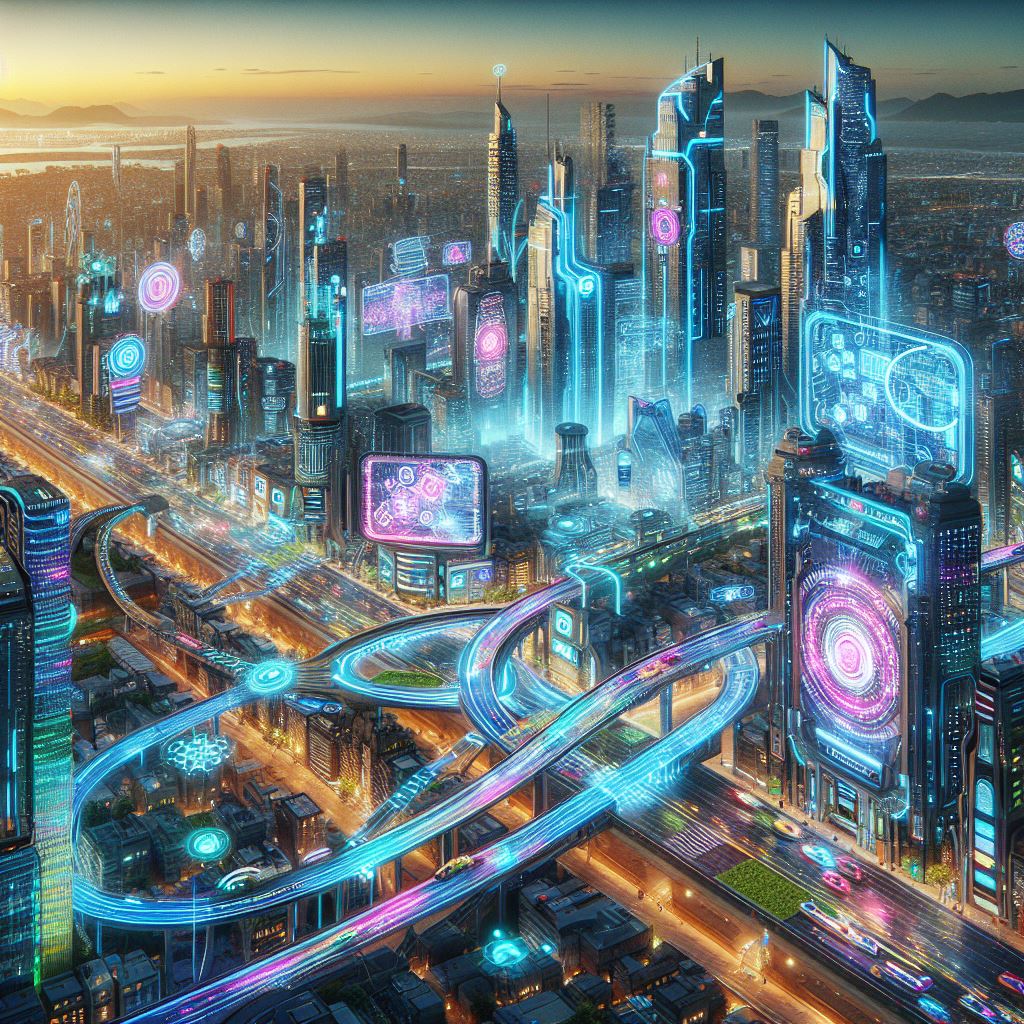The future is here, and it’s buzzing with robots, whirring with algorithms, and pulsating with the thrum of automation. Forget the dystopian visions of robots taking over the world; the reality is far more exciting. We’re on the cusp of a new era, where human ingenuity and technological prowess are merging to create a landscape of unprecedented job opportunities in automated industries.
A Glimpse into the Automated Future
But hold on, before you picture yourself as a cyborg flying spaceships, let’s break this down. Imagine factories where robots dance with precision, crafting intricate components with the grace of a ballerina. Think of farms where drones monitor crops, whispering secrets to farmers through data dashboards. See hospitals where AI assistants analyze medical scans, playing doctor’s sidekick in the fight against disease. This is the world of automation, and it’s not just about robots replacing humans; it’s about humans and machines collaborating to achieve spectacular things.

Opportunities, Reinvention, and Revolution
So, what does this mean for you, the curious individual navigating the choppy waters of career choices? It means opportunity, reinvention, and revolution. While some jobs might fade into the sunset, a whole new constellation of exciting possibilities is rising. Let’s dive into some of the hottest career paths in this automated future:
1. AI Guardians: The Defenders of the Digital Universe
Imagine being the Iron Man of the digital world, wielding your knowledge of artificial intelligence to ensure it stays ethical and unbiased, and doesn’t turn against humanity (Terminator vibes, anyone?). AI ethicists and cybersecurity specialists are the first line of defense in this digital frontier, ensuring our AI friends play nice and don’t become the next Skynet. Think of them as the moral compasses and security shields of the robot revolution.
2. Data Whisperers: Unearthing the Secrets of Information
Remember those mountains of data you see in movies? Well, someone has to make sense of all that information, and that’s where data analysts and scientists come in. They’re the detectives of the digital world, sifting through mountains of data to uncover hidden patterns, predict trends, and unlock insights that can change the game for businesses, governments, and even the world. Think of them as the modern-day alchemists, turning raw data into gold.
3. Robot Whisperers: Building the Bionic Buddies of Tomorrow
Forget clunky, rusty robots from sci-fi flicks! The future is filled with sleek, intelligent robots that can perform everything from surgery to building bridges. Robotics engineers are the architects of this robotic revolution, designing, building, and programming these bionic buddies. Imagine being the one to create the next generation of robots, pushing the boundaries of what’s possible and shaping the future of automation.
4. Virtual Visionaries: Painting the Worlds of Tomorrow
Virtual reality isn’t just for gaming anymore! It’s evolving into a powerful tool for everything from education and training to entertainment and design. Virtual reality developers are the artists of this new world, crafting immersive experiences that transport us to different dimensions, allowing us to learn, play, and create in ways never before imagined. Think of them as the Van Goghs and Michelangelos of the virtual world, painting breathtaking landscapes and sculpting experiences that will leave you breathless.

5. Climate Warriors: Harnessing Technology for a Sustainable Future
The fight against climate change is more crucial than ever, and automation is playing a vital role in this battle. Climate change engineers and scientists are using cutting-edge technology to develop sustainable solutions, from renewable energy sources to innovative environmental monitoring systems. Imagine being at the forefront of this fight, using your skills to develop technologies that can save the planet and create a cleaner, greener future for generations to come.
These are just a handful of the exciting career paths waiting to be explored in the automated future. But remember, this isn’t just about cool jobs and fancy titles. It’s about unlocking your potential and using your unique skills to make a difference in the world. So, what are the skills you need to master to thrive in this automated landscape?
Mastering Skills for Success
1. Critical Thinking and Problem-Solving
Machines can handle routine tasks, but it’s humans who excel at critical thinking, creative problem-solving, and coming up with innovative solutions. Hone your ability to think outside the box, analyze situations, and find unconventional answers.
2. Creativity and Innovation
Automation doesn’t mean the end of creativity. It opens up new avenues for artistic expression and innovative ideas. Nurture your creative side, learn to think differently, and embrace the power of imagination.
3. Collaboration and Communication
The future of work is all about teamwork, both with humans and machines. Develop your communication skills, learn to collaborate effectively, and build strong relationships with your team.
Enhancements for a Deeper Dive
Addressing Concerns and Real-World Questions
To address real-world inquiries and provide valuable information, let’s explore some common concerns and questions related to future jobs in automated industries:
Concern 1: Job Security
One common concern is job security. Will automation lead to widespread unemployment? The reality is that while certain jobs may be automated, new roles will emerge. It’s essential to adapt and acquire skills that complement automation, ensuring your relevance in the job market.
Concern 2: Skill Requirements
Another question people often ask is, “What skills do I need to thrive in automated industries?” As mentioned earlier, critical thinking, creativity, and communication are crucial. Additionally, staying updated on technological advancements and continuous learning will be beneficial.
Concern 3: Ethical Implications
The ethical implications of automation raise questions about the responsible use of technology. Incorporating ethical considerations into the development and deployment of automated systems is vital. AI ethicists play a key role in ensuring that automation aligns with ethical standards.
Concern 4: Getting Started
For those eager to embark on a career in automated industries, the question is, “How do I get started?” Attending workshops, participating in hackathons, and connecting with professionals in the field are excellent ways to explore opportunities and gain practical insights.
Conclusion: Navigating the Automated Horizon
In conclusion, the automated future is brimming with possibilities. Embrace change, cultivate your skills, and become a trailblazer in the world of automation. Whether you’re crafting the ethics of AI or designing the robots of tomorrow, your role in this revolution
is significant. The future belongs to those who collaborate with machines, not just compete with them.
Ready to Chart Your Course?
Share your thoughts on the future of work and the skills you’re honing to thrive in the automated era. Let’s start a conversation in the comments below! Remember, the future is bright for those who embrace change and see automation as an opportunity, not a threat. Step into the light, embrace the possibilities, and let’s build a future where humans and machines work together to create a better tomorrow.
